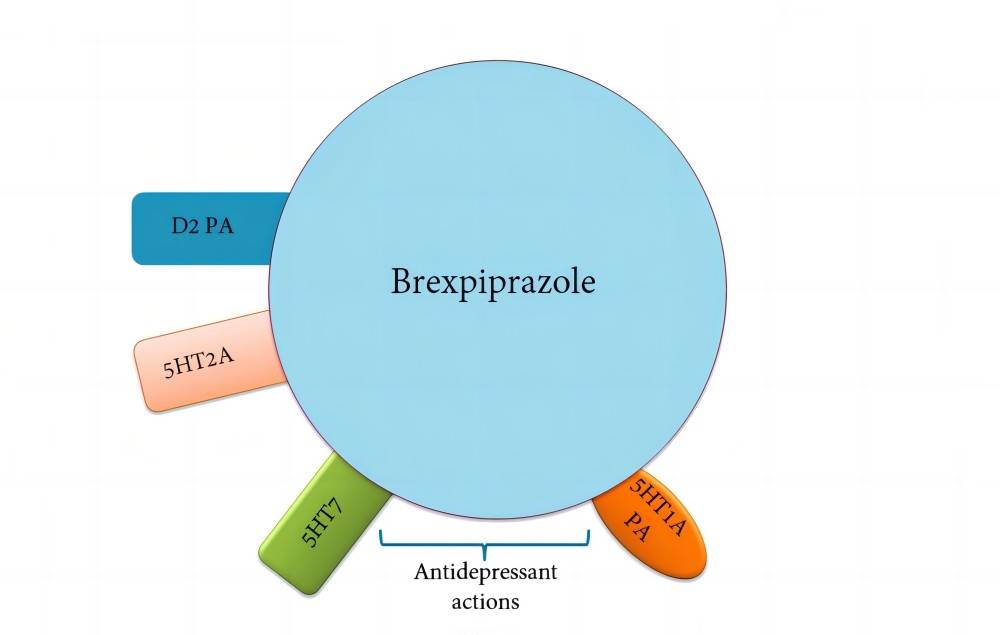Brexpiprazole API: the Active Ingredient in a Versatile Antipsychotic Medication
Brexpiprazole has emerged as a valuable medication in the treatment of various mental health conditions. But what exactly is the driving force behind its effectiveness? This article delves into the world of Brexpiprazole API, the active pharmaceutical ingredient that forms the foundation of Brexpiprazole tablets. We’ll explore its mechanism of action, delve into its approved uses, and examine the safety profile associated with Brexpiprazole. Additionally, we’ll shed light on the manufacturing landscape and future prospects for this crucial API.

Understanding Brexpiprazole API
Brexpiprazole API is the purified, active chemical compound responsible for the pharmacological effects of Brexpiprazole medication. It serves as the foundation for the formulation of Brexpiprazole tablets, making it a crucial element in the pharmaceutical manufacturing process. Brexpiprazole API manufacturers must adhere to stringent quality control measures to ensure the purity, potency, and consistency of the final product.
Mechanism of Action of Brexpiprazole API
Brexpiprazole API exerts its therapeutic effects by modulating the activity of dopamine and serotonin, two key neurotransmitters involved in regulating mood, thought processes, and behavior. It acts as a partial agonist at dopamine D2 receptors and a serotonin 5-HT1A receptor antagonist.
Here’s a breakdown of this action:
- Partial Dopamine D2 Agonism: Unlike traditional antipsychotics, which completely block D2 receptors, Brexpiprazole API acts as a partial agonist. This means it activates the receptor to a limited extent, potentially reducing the risk of some movement-related side effects observed with complete blockade.
- Serotonin 5-HT1A Receptor Antagonism: By antagonizing the 5-HT1A receptor, Brexpiprazole API can help regulate mood and improve negative symptoms associated with schizophrenia.
This unique combination of actions contributes to Brexpiprazole’s diverse therapeutic applications.

Brexpiprazole Uses
The FDA approval of Brexpiprazole in 2005 marked a significant advancement in managing various mental health conditions. Here’s a closer look at its approved uses:
- Schizophrenia: Brexpiprazole is a first-line treatment option for schizophrenia, effectively managing both positive symptoms (hallucinations, delusions) and negative symptoms (social withdrawal, apathy).
- Major Depressive Disorder (MDD): As an adjunctive therapy, Brexpiprazole can be used alongside antidepressants to improve treatment outcomes in patients with MDD who haven’t achieved adequate response with antidepressants alone.
- Agitation in Alzheimer’s Disease: Brexpiprazole can help manage behavioral disturbances like aggression and wandering in patients diagnosed with Alzheimer’s disease.
Brexpiprazole Tablets: Dosage and Administration
Brexpiprazole tablets are available in various strengths, typically ranging from 0.25mg to 6mg. The specific dosage and administration schedule are determined by the treating physician based on individual factors like the patient’s condition, severity, and response to the medication.
It’s important to note that Brexpiprazole tablets should be taken as directed by the doctor, and patients should not adjust their dosage or stop taking the medication without consulting their healthcare provider.

Potential Side Effects and Risks of Brexpiprazole
As with any medication, Brexpiprazole can cause side effects. Some of the most common ones include drowsiness, dizziness, akathisia (restlessness), headache, nausea, and constipation. Most of these side effects are mild and tend to diminish over time. However, it is essential to report any persistent or concerning side effects to a healthcare professional.
There are also potential risks associated with Brexpiprazole, such as:
- Metabolic Changes: Brexpiprazole may increase blood sugar levels and cholesterol, requiring monitoring in patients with diabetes or high cholesterol.
- Movement Disorders: In some cases, long-term use of Brexpiprazole can increase the risk of tardive dyskinesia, a movement disorder characterized by involuntary movements of the face, tongue, or limbs.
- Drug Interactions: Brexpiprazole can interact with other medications, potentially affecting their efficacy or increasing the risk of side effects. It is crucial to disclose all medications being taken to a doctor to avoid potential interactions.
Brexpiprazole API Manufacturers
The global market for Brexpiprazole API is witnessing significant growth. Several pharmaceutical companies play a vital role in manufacturing and supplying this essential ingredient. Some prominent Brexpiprazole API manufacturers include:
- Sichuan Qingmu Pharmaceutical Company (China)
- Polpharma (Poland)
These companies ensure consistent production of high-quality Brexpiprazole API, adhering to stringent Good Manufacturing Practices (GMP) standards to guarantee the safety and efficacy of the final medication.
Market Trends and Research Advancements
The future of Brexpiprazole holds promise for both patients and the pharmaceutical industry. Here’s a closer look at emerging trends and ongoing research efforts:
- Emerging Applications and Therapeutic Potential: Brexpiprazole’s unique mechanism of action has researchers exploring its potential use in treating other mental health conditions beyond its current approved indications. These include:
- Bipolar disorder: Studies are investigating Brexpiprazole’s efficacy in managing symptoms of bipolar disorder, both manic and depressive episodes.
- Anxiety disorders: Early research suggests that Brexpiprazole might be beneficial in treating anxiety disorders, potentially due to its influence on serotonin systems.
- Clinical Trials and Research Efforts: Ongoing clinical trials are evaluating Brexpiprazole’s safety and effectiveness in these new treatment areas. These trials will help determine whether Brexpiprazole can expand its therapeutic reach and provide relief for a broader population struggling with mental health challenges.
- Market Landscape and Commercial Outlook: The global market for Brexpiprazole API is projected to experience continued growth in the coming years. This growth can be attributed to several factors, including:
- Rising prevalence of mental health conditions: As awareness of mental health issues increases, the demand for effective treatment options like Brexpiprazole is expected to rise.
- Aging population: The growing geriatric population is more susceptible to conditions like Alzheimer’s disease, potentially increasing the use of Brexpiprazole for managing agitation.
- Patent expiries and generic competition: While the original patent for Brexpiprazole has expired in some regions, the emergence of generic versions might make the medication more accessible and affordable for patients.

Conclusion
Brexpiprazole API stands as a crucial component in the fight against various mental health conditions. Its unique mechanism of action allows it to address a range of symptoms, offering relief to patients with schizophrenia, depression, and Alzheimer’s disease-related agitation. As research continues to explore its potential in new treatment areas, Brexpiprazole holds promise for further enhancing mental healthcare outcomes.








